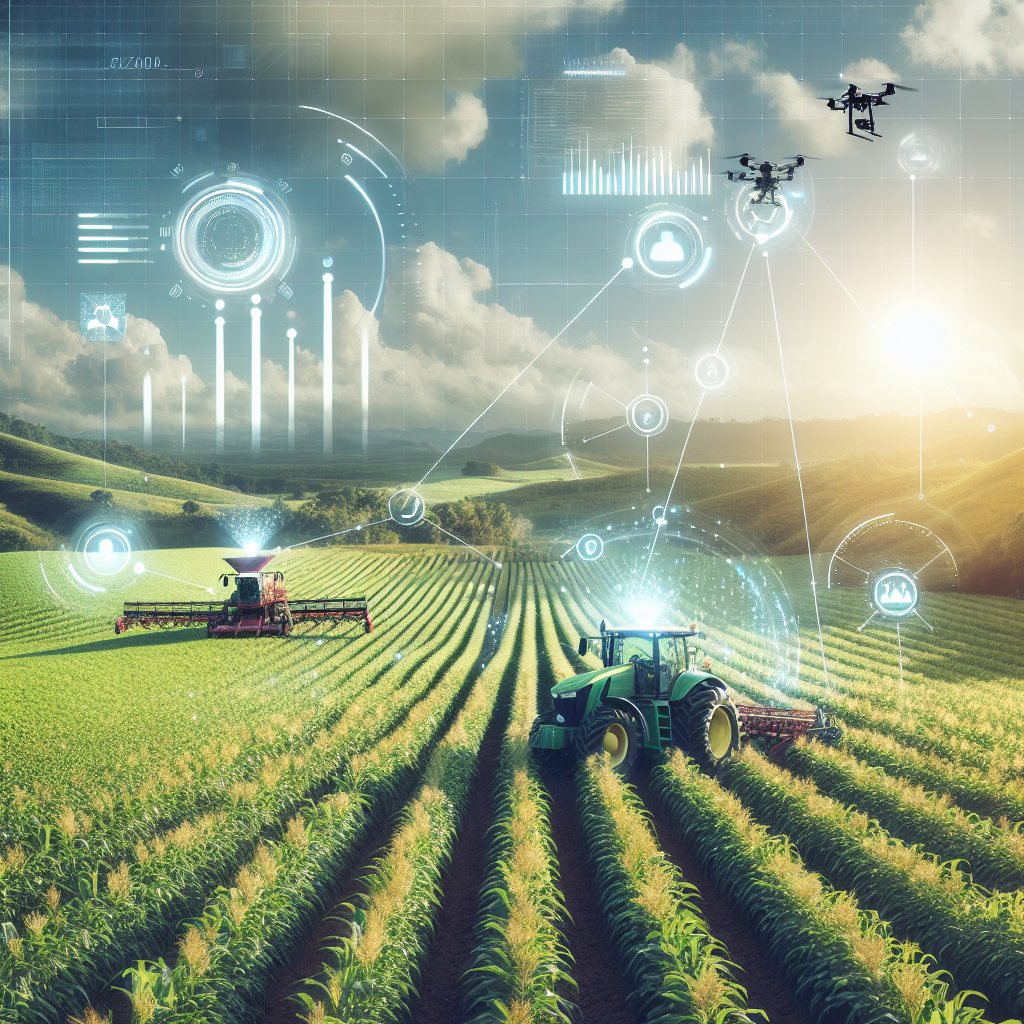In recent years, the agricultural industry has seen a significant transformation with the integration of artificial intelligence (AI) platforms. These platforms have revolutionized the way farmers and agribusinesses operate, offering innovative solutions to increase efficiency, productivity, and sustainability in the sector. From crop monitoring to predictive analytics, AI platforms have a wide range of applications in agriculture that are helping farmers make better decisions and optimize their operations.
One of the key applications of AI platforms in agriculture is in precision farming. Precision farming involves using technology to optimize crop production by monitoring and managing individual plants or fields. AI platforms can analyze data from sensors, drones, satellites, and other sources to provide farmers with real-time insights on soil health, weather conditions, crop growth, and more. This information allows farmers to make informed decisions about irrigation, fertilization, and pest control, leading to higher yields and reduced environmental impact.
Another important application of AI platforms in agriculture is in crop monitoring and disease detection. By analyzing images and data collected from drones or cameras, AI platforms can identify early signs of pest infestations, diseases, or nutrient deficiencies in crops. This enables farmers to take timely action to prevent the spread of diseases and minimize crop losses. AI platforms can also help farmers optimize harvesting schedules, identify crop quality issues, and predict yields more accurately.
In addition to crop monitoring, AI platforms are also being used for predictive analytics in agriculture. By analyzing historical data and environmental factors, AI platforms can forecast crop yields, market prices, and weather patterns. This information allows farmers to plan their planting and harvesting schedules more effectively, reduce risks, and maximize profits. Predictive analytics can also help agribusinesses optimize supply chain management, inventory control, and pricing strategies.
AI platforms are also being utilized in livestock farming to monitor animal health, behavior, and productivity. By analyzing data from sensors and wearable devices, AI platforms can detect early signs of diseases, injuries, or stress in animals. This allows farmers to provide timely medical treatment, improve nutrition, and optimize breeding practices. AI platforms can also help farmers track animal movements, monitor feed consumption, and predict market demand for livestock products.
Overall, the applications of AI platforms in agriculture are diverse and far-reaching, offering numerous benefits to farmers, agribusinesses, and the environment. By leveraging the power of AI, farmers can increase productivity, reduce costs, minimize risks, and make more sustainable decisions. As the agricultural industry continues to evolve, AI platforms will play an increasingly important role in shaping the future of farming.
FAQs:
1. How can AI platforms help farmers improve crop yields?
AI platforms can help farmers improve crop yields by providing real-time insights on soil health, weather conditions, and crop growth. By analyzing this data, farmers can make informed decisions about irrigation, fertilization, and pest control, leading to higher yields and reduced environmental impact.
2. How are AI platforms being used in livestock farming?
AI platforms are being used in livestock farming to monitor animal health, behavior, and productivity. By analyzing data from sensors and wearable devices, AI platforms can detect early signs of diseases, injuries, or stress in animals. This allows farmers to provide timely medical treatment, improve nutrition, and optimize breeding practices.
3. What are the benefits of using AI platforms in agriculture?
The benefits of using AI platforms in agriculture include increased productivity, reduced costs, minimized risks, and more sustainable decision-making. By leveraging the power of AI, farmers can optimize their operations, improve crop yields, and make better-informed decisions.
4. How can farmers integrate AI platforms into their existing operations?
Farmers can integrate AI platforms into their existing operations by partnering with technology providers, investing in sensors and other data collection tools, and training their workforce on how to use AI platforms effectively. By incorporating AI into their operations, farmers can take advantage of the latest innovations in agriculture and stay competitive in the industry.

